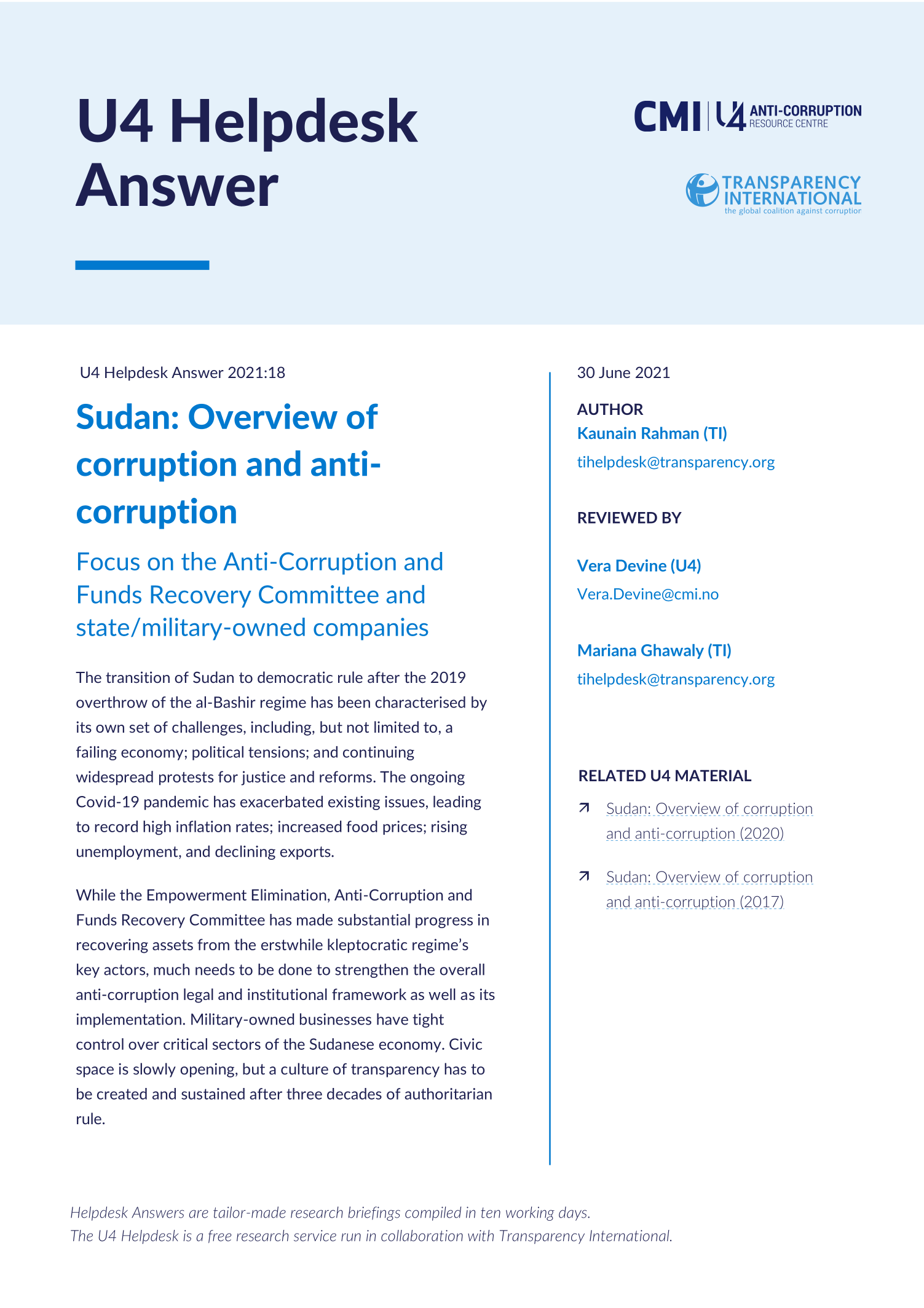Main points
- Corruption continues to be endemic in the Sudanese context, with several key players from the former authoritarian regimes occupying positions of power in the transitional government.
- The Anti-Corruption and Funds Recovery Committee is a political body set up to dismantle the kleptocratic networks of the erstwhile al-Bashir regime. It has gained popularity with the citizenry after having reportedly seized substantial assets from the corrupt actors of the NCP since its inception.
- Military-owned businesses have tight control over key sectors of the Sudanese economy, such as gold, meat exports, and rubber. These companies operate in a grey zone and are shrouded in opacity regarding their structure, profits, and payment of taxes.
- The anti-corruption legal and institutional framework needs strengthening.
- Civic space is slowly opening up, and on-ground anti-corruption capacity needs to be increased.



